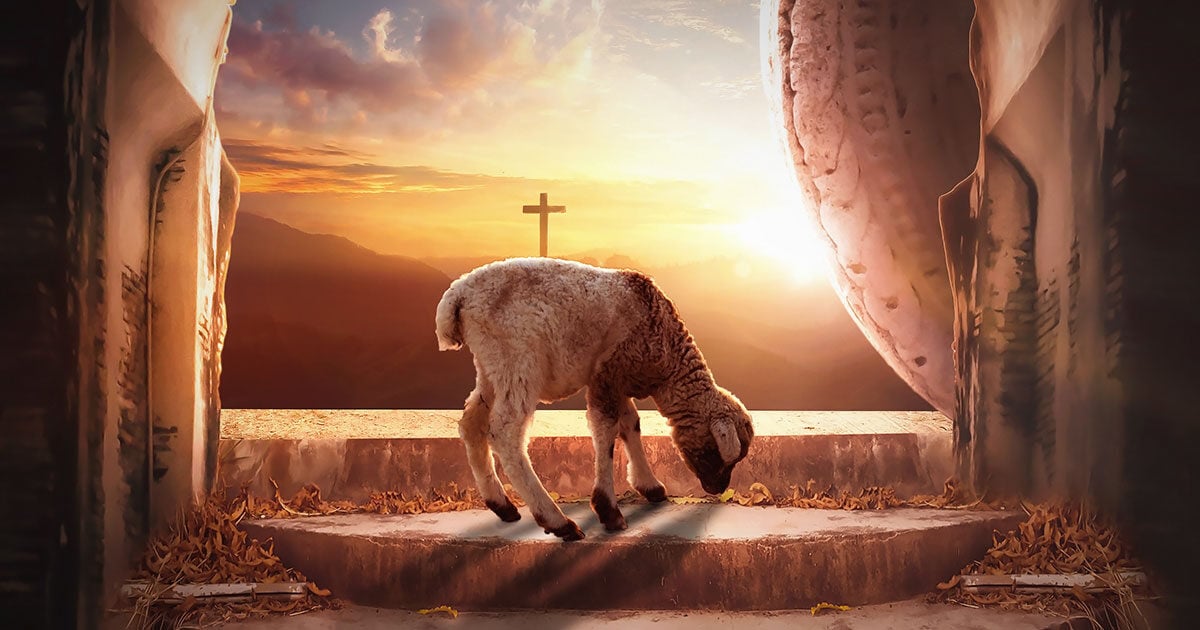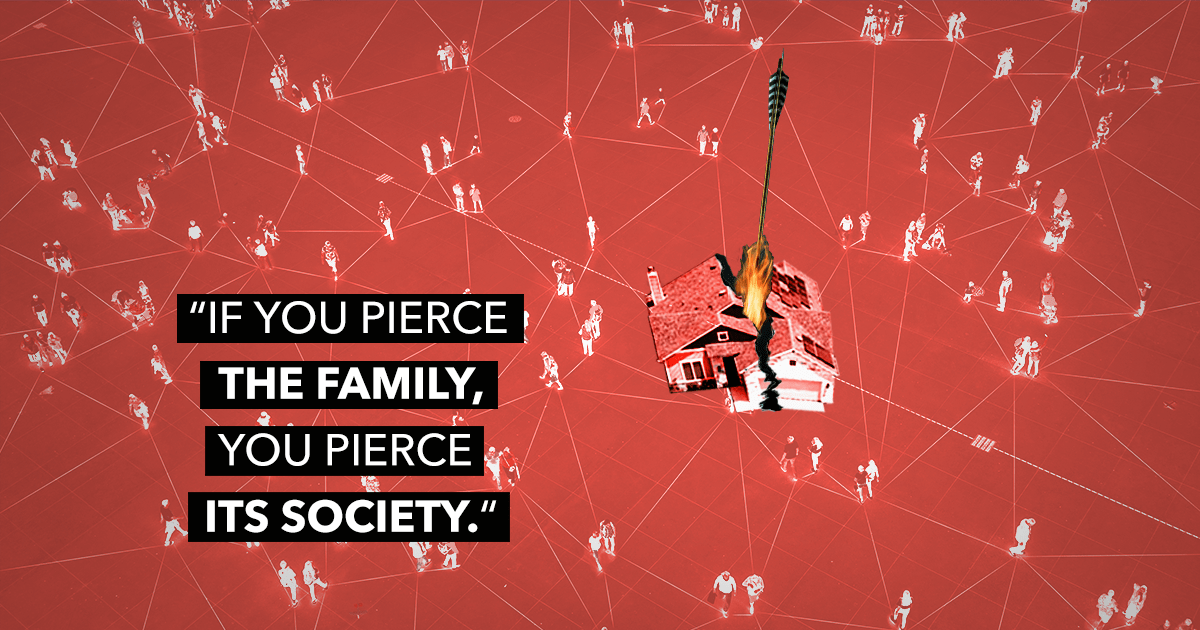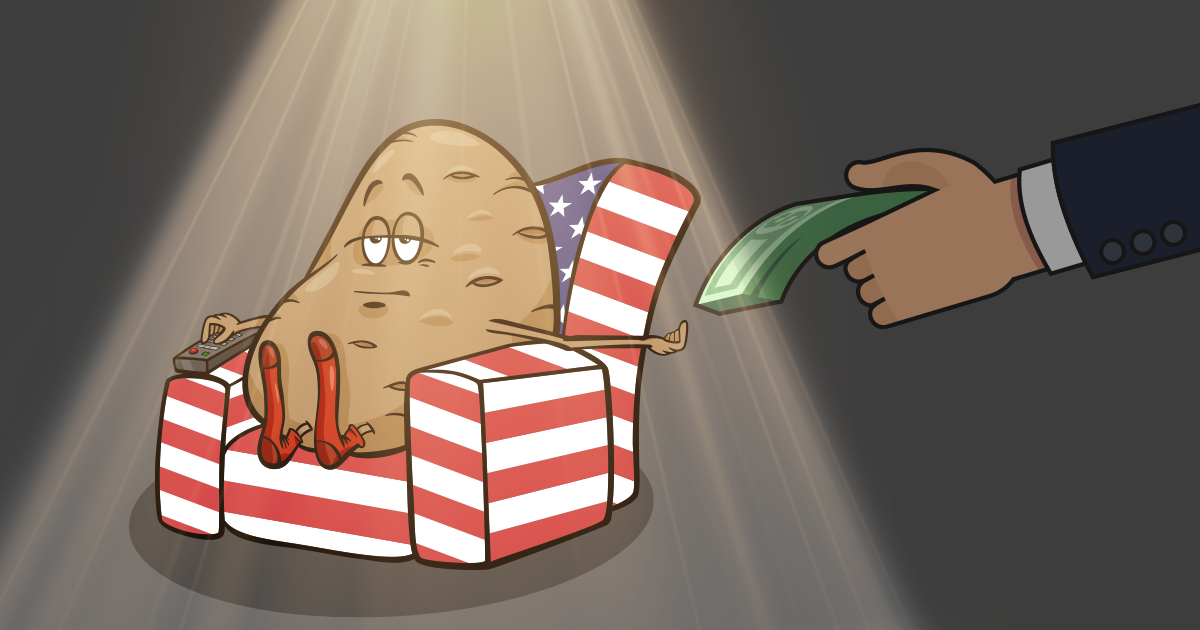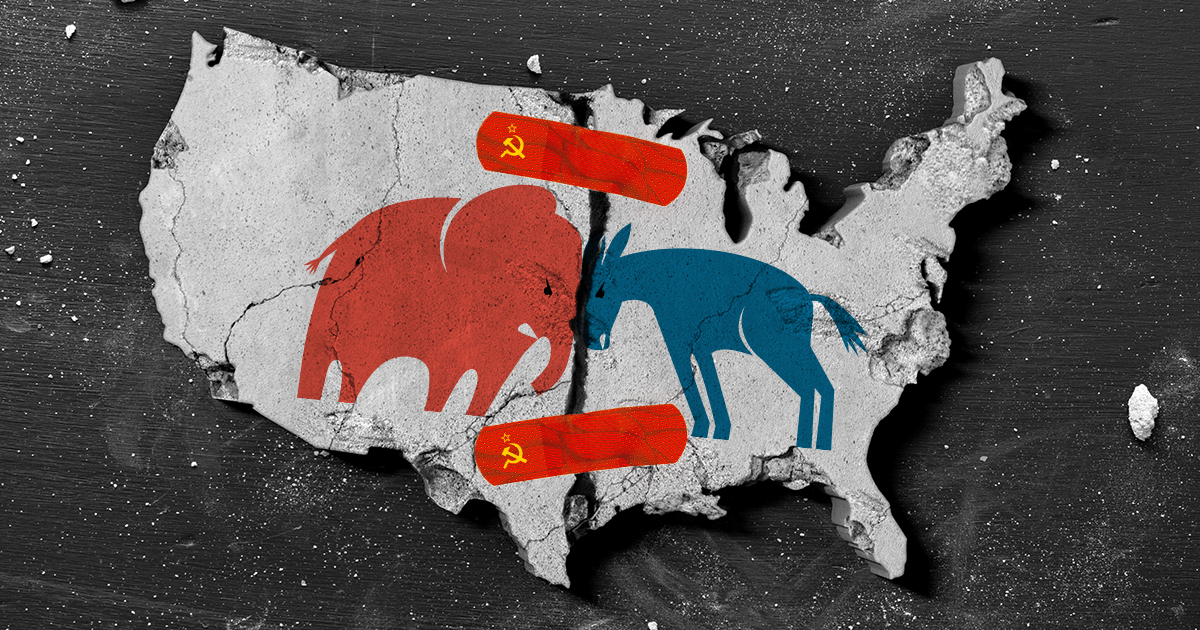In the third segment of the Love 101 series, we have a special guest post from Dawson McAllister, a popular speaker and radio host who has worked with young adults for many years through his program, Dawson McAllister Live. He was a guest on Dr. James Dobson's Family Talk broadcast, talking about the key differences between genuine love and infatuation in a romantic relationship.
You've been dating someone for a while, and you've developed strong feelings for this special person. It's fun and exciting. You're attracted to each other, have a lot in common, and enjoy being together. Plus, you can't wait until the next time you'll see each other.
It's a great relationship, and you're wondering if you're ready to say those three special words, "I love you." But, you're not certain. Is it love—or infatuation?
How can you really know if you're in love?
According to Hollywood movies and the advice of many people, "You'll just know." But you don't always "just know," especially if you're unclear on the criteria for real and genuine love in a dating relationship. Hopefully, a romance that will lead to marriage, if that's what you desire.
Thankfully, according to Dawson McAllister, there are ways to discern true love from infatuation.
This popular author and speaker hosted a nationally syndicated talk show for teens and young adults for many years called Dawson McAllister Live. And he's shared wisdom about love and relationships on the Family Talk broadcast, "How to Know You're In Love."
Here's a summary of some of Dawson McAllister's helpful insights to the question: "How can I know I'm in love?"
He approaches the question by looking at what the Bible, God's Word, says about love and relationships, and McAllister talks about the difference between genuine love and infatuation.
First, there's nothing wrong with being infatuated. In fact, almost every relationship starts out in infatuation, but you wouldn't want to decide to get married based on that alone.
Infatuation is the emotional impulse of love. It feels like love. It looks like love. It acts like love. You can't eat, you can't sleep. The problem is, the relationship hasn't passed some very important tests: the test of time and the test of negative circumstances.
What is love?
The strongest desire that we have psychologically is to love and be loved. Love is an emotional need—and an act of the will, not simply emotions. That's something we tend to forget.
But there's more. Love is an emotional need and an act of the will that is based on a clear understanding of what the other person is like. Love takes a long look at the other person emotionally, spiritually, mentally, socially, physically, and then love acts.
So let's begin with a definition of love from the love chapter in the Bible, 1 Corinthians 13:
"Love is patient, love is kind. It does not envy, it does not boast, it is not proud. It does not dishonor others, it is not self-seeking, it is not easily angered, it keeps no record of wrongs. Love does not delight in evil but rejoices with the truth. It always protects, always trusts, always hopes, always perseveres. Love never fails."
(1 Corinthians 13:4-8)
The difference between love and infatuation
Infatuation is in a big hurry and wants to change the character of the one being dated. Love can wait, fully accepting the character of the one being dated. Let's go back to the point of the "test of time" in a relationship.
Let's say you want to grow the world's greatest plant. So you've got the world's greatest seed, the world's greatest sunlight, and the world's greatest fertilizer. You get all of that together, and you'd have a plant? Right? No. What's missing?
Time.
You might say, "Dawson, I've just met some guy or some girl, and there was just this attraction and I said, 'I am in love.'" That's not love. That was chemistry. Good chemistry. What's missing? Time.
Love is a growing process. Any amount of growth takes time. If you're not sure if you're in love, wait. You need more time to find out what the other person is really like.
While you will never know someone 100%, you can come closer to knowing and making a good decision. It starts with asking some hard questions. For instance:
• What happens when this person is disappointed?
• What is this person like when he or she is crossed?
• Is this person neat or sloppy?
• How are his or her communication skills?
• What does this person think about God?
Remember, the deepest desire you have outside of being loved is God. Don't be vague when you two talk about God. Where does this person really stand with his or her relationship and daily walk with Jesus Christ?
When it comes to love, I've always told guys, "Don't tell a girl you love her unless you're willing to say, 'I'm committed to marrying you' at the same time."
Infatuation wants to change the character of the person being dated. You might say, "There's 80% of this person that I really like, but there's 20% of this person I do not like and I'm going to change him or her."
Now that person may change. Or, God may create some changes in time. But basically, your significant other's personality has been set. So when you try to change him or her, you get that person feeling insecure…worried. You mess around with his or her self-image. And that's not love.
Love says, "I care all about you. I've come to know you. I've thought about you, I've prayed about you."
Marital love says, "I care all about you. I've seen you and I care about you, even if you don't change." In fact, you ought to be able to say to the person you're going to marry after you find out his or her qualities, "I would be willing to live with you just the way you are, even if you don't change."
That important. Because if little things bug you in the dating relationship now, when you get married, the bug will grow into a monster. Love is patient. That's number one.
Also, love is kind.
Infatuation quickly forgets deeds which are helpful to the other person. Love, on the other hand, continues to give and give and give.
Usually when we start out in a dating relationship, we do pretty well with giving. You may write her little notes, or be on phone calls together until late at night, or send her flowers.
And when the thrill is seemingly gone, you keep on giving and giving and giving. That's love.
When it comes to making a relationship work, men: Do not, I repeat, do not get married unless you are willing to make your wife the second most important priority in your life. God, first, your wife and family second, then your job, then your toys, then your hobby. Then come all the other things.
Bottom line: If you want to know whether or not you're really in love, give it the test of time.
Dr. James Dobson concludes with similar insight about genuine love versus infatuation:
Infatuation is the name we give to that first bright burst of attraction between two people. It sets our pulses racing and it makes us think of clouds, fireworks, and stories that end in "happily ever after." And there's no doubt that infatuation looks and feels very much like love.
The only problem is, it doesn't last. It's a quick emotional high with no commitment behind it, and when it runs its course, we find ourselves back where we started with little or nothing to show for the experience.
How then can we distinguish real love from temporary attraction?
There's only one answer to that question: it takes time.
The best advice I can offer a couple contemplating marriage, or any other important issue is this, make no important life-shaping decisions quickly or impulsively. Measure your motivations carefully, and when in doubt, stall for time. Give your emotions a chance to evolve and oscillate.
If your love is real, it can handle the weight, and your relationship will be all the stronger for the seasoning of an unhurried foundation.
Dawson McAllister was a popular speaker, author, and radio host of Dawson McAllister Live, a nationally syndicated radio talk show for teens and young adults. He also founded The Hope Line, a 24 hour counseling chatline for young people, and he has written several teaching manuals for kids, parents, and youth workers.
You've been dating someone for a while, and you've developed strong feelings for this special person. It's fun and exciting. You're attracted to each other, have a lot in common, and enjoy being together. Plus, you can't wait until the next time you'll see each other.
It's a great relationship, and you're wondering if you're ready to say those three special words, "I love you." But, you're not certain. Is it love—or infatuation?
How can you really know if you're in love?
According to Hollywood movies and the advice of many people, "You'll just know." But you don't always "just know," especially if you're unclear on the criteria for real and genuine love in a dating relationship. Hopefully, a romance that will lead to marriage, if that's what you desire.
Thankfully, according to Dawson McAllister, there are ways to discern true love from infatuation.
This popular author and speaker hosted a nationally syndicated talk show for teens and young adults for many years called Dawson McAllister Live. And he's shared wisdom about love and relationships on the Family Talk broadcast, "How to Know You're In Love."
Here's a summary of some of Dawson McAllister's helpful insights to the question: "How can I know I'm in love?"
He approaches the question by looking at what the Bible, God's Word, says about love and relationships, and McAllister talks about the difference between genuine love and infatuation.
First, there's nothing wrong with being infatuated. In fact, almost every relationship starts out in infatuation, but you wouldn't want to decide to get married based on that alone.
Infatuation is the emotional impulse of love. It feels like love. It looks like love. It acts like love. You can't eat, you can't sleep. The problem is, the relationship hasn't passed some very important tests: the test of time and the test of negative circumstances.
What is love?
The strongest desire that we have psychologically is to love and be loved. Love is an emotional need—and an act of the will, not simply emotions. That's something we tend to forget.
But there's more. Love is an emotional need and an act of the will that is based on a clear understanding of what the other person is like. Love takes a long look at the other person emotionally, spiritually, mentally, socially, physically, and then love acts.
So let's begin with a definition of love from the love chapter in the Bible, 1 Corinthians 13:
"Love is patient, love is kind. It does not envy, it does not boast, it is not proud. It does not dishonor others, it is not self-seeking, it is not easily angered, it keeps no record of wrongs. Love does not delight in evil but rejoices with the truth. It always protects, always trusts, always hopes, always perseveres. Love never fails."
(1 Corinthians 13:4-8)
The difference between love and infatuation
Infatuation is in a big hurry and wants to change the character of the one being dated. Love can wait, fully accepting the character of the one being dated. Let's go back to the point of the "test of time" in a relationship.
Let's say you want to grow the world's greatest plant. So you've got the world's greatest seed, the world's greatest sunlight, and the world's greatest fertilizer. You get all of that together, and you'd have a plant? Right? No. What's missing?
Time.
You might say, "Dawson, I've just met some guy or some girl, and there was just this attraction and I said, 'I am in love.'" That's not love. That was chemistry. Good chemistry. What's missing? Time.
Love is a growing process. Any amount of growth takes time. If you're not sure if you're in love, wait. You need more time to find out what the other person is really like.
While you will never know someone 100%, you can come closer to knowing and making a good decision. It starts with asking some hard questions. For instance:
• What happens when this person is disappointed?
• What is this person like when he or she is crossed?
• Is this person neat or sloppy?
• How are his or her communication skills?
• What does this person think about God?
Remember, the deepest desire you have outside of being loved is God. Don't be vague when you two talk about God. Where does this person really stand with his or her relationship and daily walk with Jesus Christ?
When it comes to love, I've always told guys, "Don't tell a girl you love her unless you're willing to say, 'I'm committed to marrying you' at the same time."
Infatuation wants to change the character of the person being dated. You might say, "There's 80% of this person that I really like, but there's 20% of this person I do not like and I'm going to change him or her."
Now that person may change. Or, God may create some changes in time. But basically, your significant other's personality has been set. So when you try to change him or her, you get that person feeling insecure…worried. You mess around with his or her self-image. And that's not love.
Love says, "I care all about you. I've come to know you. I've thought about you, I've prayed about you."
Marital love says, "I care all about you. I've seen you and I care about you, even if you don't change." In fact, you ought to be able to say to the person you're going to marry after you find out his or her qualities, "I would be willing to live with you just the way you are, even if you don't change."
That important. Because if little things bug you in the dating relationship now, when you get married, the bug will grow into a monster. Love is patient. That's number one.
Also, love is kind.
Infatuation quickly forgets deeds which are helpful to the other person. Love, on the other hand, continues to give and give and give.
Usually when we start out in a dating relationship, we do pretty well with giving. You may write her little notes, or be on phone calls together until late at night, or send her flowers.
And when the thrill is seemingly gone, you keep on giving and giving and giving. That's love.
When it comes to making a relationship work, men: Do not, I repeat, do not get married unless you are willing to make your wife the second most important priority in your life. God, first, your wife and family second, then your job, then your toys, then your hobby. Then come all the other things.
Bottom line: If you want to know whether or not you're really in love, give it the test of time.
Dr. James Dobson concludes with similar insight about genuine love versus infatuation:
Infatuation is the name we give to that first bright burst of attraction between two people. It sets our pulses racing and it makes us think of clouds, fireworks, and stories that end in "happily ever after." And there's no doubt that infatuation looks and feels very much like love.
The only problem is, it doesn't last. It's a quick emotional high with no commitment behind it, and when it runs its course, we find ourselves back where we started with little or nothing to show for the experience.
How then can we distinguish real love from temporary attraction?
There's only one answer to that question: it takes time.
The best advice I can offer a couple contemplating marriage, or any other important issue is this, make no important life-shaping decisions quickly or impulsively. Measure your motivations carefully, and when in doubt, stall for time. Give your emotions a chance to evolve and oscillate.
If your love is real, it can handle the weight, and your relationship will be all the stronger for the seasoning of an unhurried foundation.
Dawson McAllister was a popular speaker, author, and radio host of Dawson McAllister Live, a nationally syndicated radio talk show for teens and young adults. He also founded The Hope Line, a 24 hour counseling chatline for young people, and he has written several teaching manuals for kids, parents, and youth workers.












